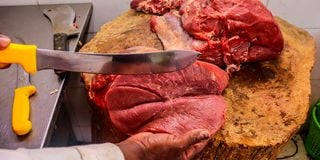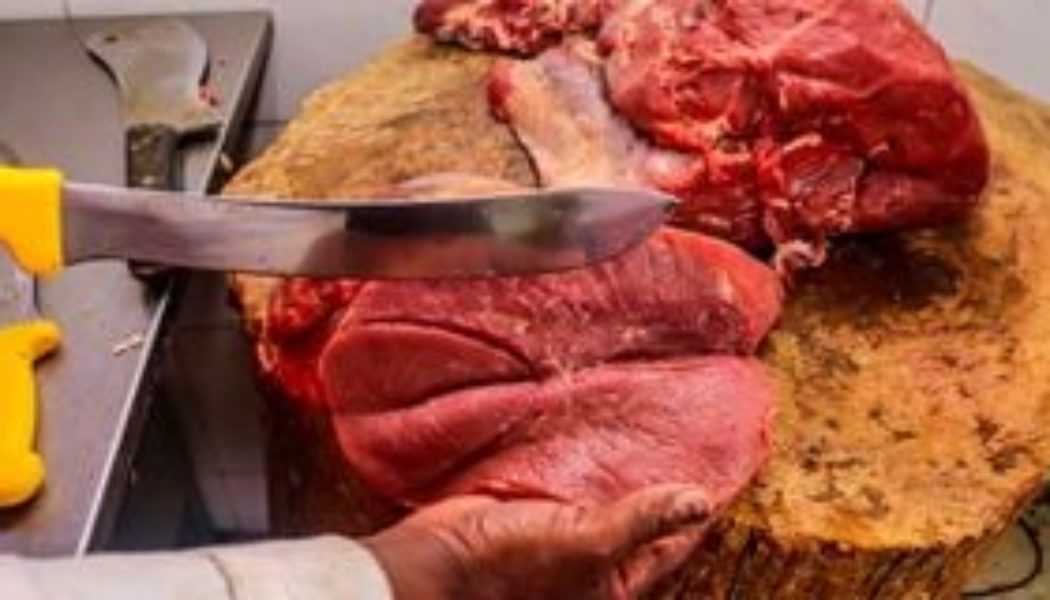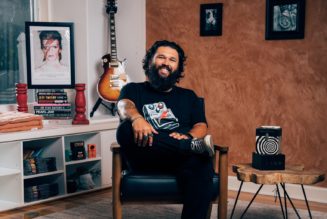For generations, Mohamed Yakub Saroya and his family have put food on the tables of many families in Nairobi through different cuts of meat. You could call him the meat god of Pangani—he knows meats like he knows his name. He has maintained loyal clients for decades, and his camaraderie with them speaks of age-old relationships.
He took over the management of the business in 1957. He was just a teenager then and had to fill shoes that were several sizes bigger when his father was taken ill.
“I played football right outside the shop,” the 79-year-old reflects nostalgically, pointing to a parking lot that was once a lively communal yard where children played freely.
Despite his young age then, taking over from his father was not difficult. The boy, Mohamed, had been apprenticed over the years. He watched his father work, learning about client and supplier relations, pricing, sourcing, and other trade practices.
“I was not alone; my four brothers would assist in running the business,” he remembers.
Today, Tip Top Butchery has been in business for over 70 years. It was first operated by Mohamed’s grandfather, who left it for Mohamed’s father, who later handed the reins to Mohamed, who is now taking the back seat as his son Yasser Saroya assumes the driver’s position.
From joke to legacy
Yasser was not always a butcher. Until 2016, he had carved out a niche in the car sale and rental business. Then one day, one of his father’s workers, who had watched him grow, jokingly told him that the meat business runs in his blood and that there was nothing in cars for him.
“I took the joke seriously and wound up my business to come and help my father run his,” he says.
Eight years later, Yasser is proving himself a quick study, reshaping the business for a modern age.
“The landscape has changed rapidly. When my father and grandfather ran things, clients couldn’t just place orders with a click. Now, 60 percent of our business happens on mobile apps like WhatsApp and other fast-moving consumer goods platforms. These shifts are essential to stay relevant and bring greater convenience for us and our clients,” Yasser explains.
What have the last eight years taught him about the meat business?
“Age and size are a great factor in meat’s tenderness. For example, smaller goats tend to have more tender and tastier meat than larger goats,” he says.
Avoiding third-generation curse
As the baton of the family business has passed down four generations, the Saroyas have avoided the succession conflicts that often plague family ventures. How have they managed it?
“We work hard, we are not wasteful, and above all, family is more important than business,” Mohamed shares.

Meat being prepared for sale at Tip Top Butchery in Nairobi on October 23, 2024.
Photo credit: Bonface Bogita | Nation Media Africa
“Over the years, my brothers and I ran the business together; three have since passed on, and one moved to the United Kingdom, that leaves me with Yasser, running the business.”
Father and son operate in seamless tandem. When the BDLife visited them, Mohamed held court in his usual back office, while Yasser managed the front with the rest of the team.
This clear role separation ensures a smooth workflow and avoids the confusion common in family enterprises.
Power of role differentiation
“Defining roles is essential in a family business. Without it, there’s confusion, and everyone wants to be in charge but shy away from the heavy lifting,” Mohamed advises.
At nearly 80, Mohamed’s dedication is unwavering; he is the first to get to the shop daily. He has cultivated a work ethic that everyone else strives to match.
So dedicated to the business is he that, up until 2023, he had never taken a break from work. Six decades of a relentless labour of love. Finally, Yasser sent him on a well-deserved vacation to Kenya’s Coastal region.
“My father is here at exactly 7 am, seven days a week,” says Yasser with admiration.
For Mohamed, the butchery is more than a livelihood—it’s a lifestyle, a rhythm as natural as breathing.

Mohamed Yakub during an interview at Tip Top Butchery in Nairobi on October 23, 2024.
Photo credit: Bonface Bogita | Nation Media Africa
“When you do something for so many years, it becomes a part of who you are so much that not doing it becomes the exception,” he reflects.
Yet, he values his afternoon siesta deeply, signalling that work may be essential, but so is rest.
Wisdom of staying small
While most entrepreneurs see longevity as a chance to expand, the Saroya family keeps it simple.
They only have one butchery.
“We only have this one at the moment. We used to have other branches that we closed down due to high operational costs and logistical challenges. We had a butchery on Mombasa Road before construction of the Express Way; it would take me about three hours for a round trip. I couldn’t keep up with the time demands,” says Yasser.
The secret longevity sauce
Many such businesses have come and gone while Tip Top Butchery has stood the test of time and turbulence. Do they have a secret?
“It’s not really a secret. Cleanliness is non-negotiable here. We take pride in a spotless shop where you won’t notice any odour. Clients appreciate it and come back because of it. Plus, we prioritise honesty and fair prices. During the Covid-19 pandemic, for instance, we kept our price adjustments minimal despite rising costs,” says Yasser.
Having the right people in the business also helps. Most of the staff have been in the business for years. They understand the business and the processes. Today, Yasser says, they can efficiently run it without the family.

Meat sold at Tip Top Butchery in Nairobi on October 23, 2024.
Photo credit: Bonface Bogita | Nation Media Africa
After 67 years in the same trade, has Mohamed ever wanted a different path?
“Sixty years in, this is who I am. This isn’t just a job—it’s my life,” he says, unflinchingly.
Yasser echoes the sentiment.
“I once had a brain aneurysm, and on my way home from surgery, with stitches on my head, I was still fielding client calls. With dedication, it can’t get boring.”
If there is one thing growing old in entrepreneurship has taught Mohamed it is patience.
“Give it time. To be happy, you don’t require much in life,” he says, “If it is God’s will, it will happen.”
Mohamed and Yasser hope that future generations will carry forward the principles that have defined the family legacy.









